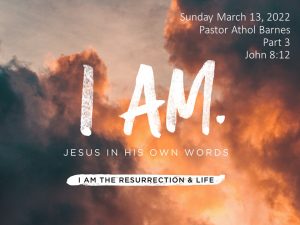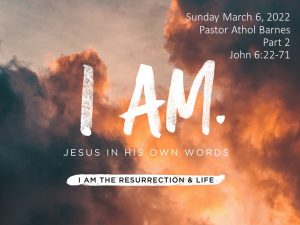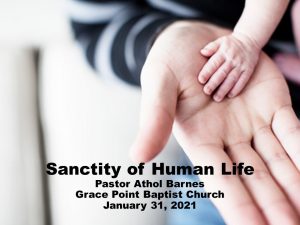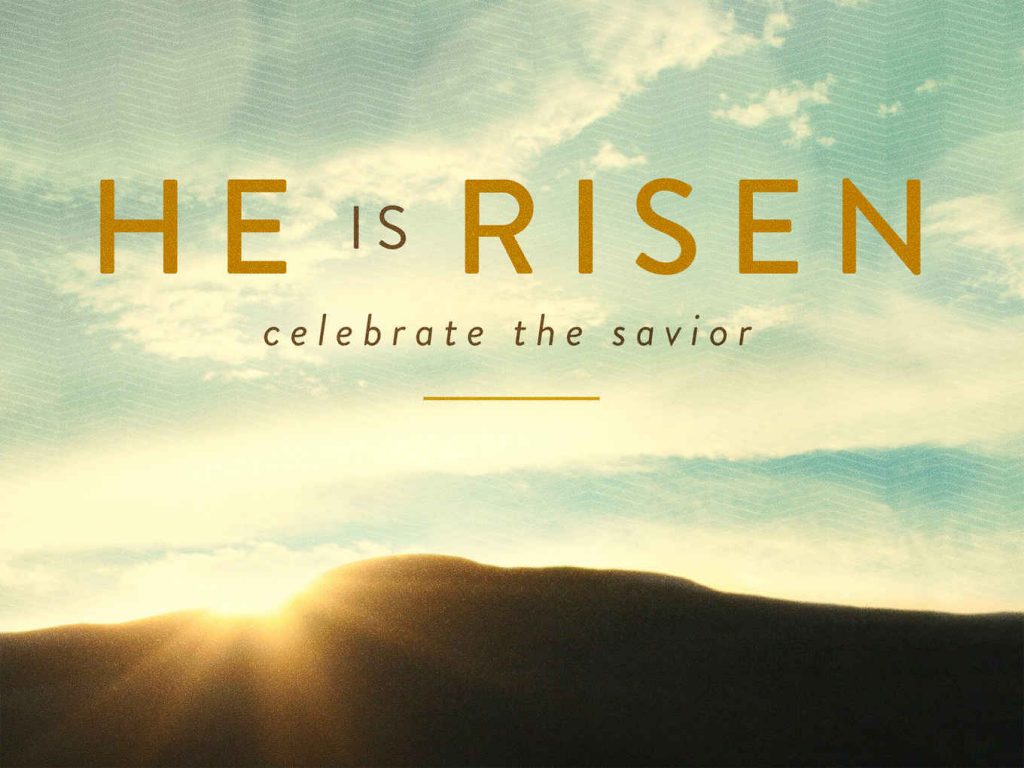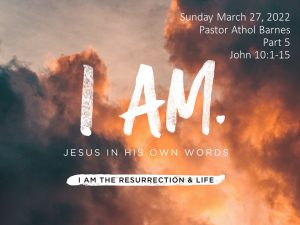
In John 10 verse 11, Jesus called himself, the Good Shepherd, contrasting himself to a hired hand who simply cares for the sheep to get paid. Then Jesus called the Pharisees, “hired hands” in verse 12.
Jesus continues (verse 11 and 15) to say that the Good Shepherd lays down his life for the sheep. To those listening, a shepherd was supposed to be brave and fight off wild animals, but dying for the sheep was a tragedy and not the intention of the shepherd.
In John 10, Jesus stated five times that he was going to lay down his own life, and Jesus clearly affirmed the sacrificial nature of His death. He did not die as a martyr, he died as a substitute, willingly laying down his life for us. Remember how John the Baptist identified Jesus when he met him (see John 1:29).
Furthermore in John 10:14 Jesus said, “I am the good shepherd. I know my own and my own know me.” How well do you know Jesus?
When we think of Jesus as the Good Shepherd many of us think of Psalm 23. It is a wonderful Psalm, but utterly meaningless if you don’t know the Shepherd personally. When you go to church or open the Bible, do you simply want to know about God, or do you desire to know Him personally. This is the personal relationship that Jesus offers us.
Because God knows our natures, He also knows our needs before we are even aware of them. As the shepherd cares for the sheep, the sheep get to know their shepherd better. The Good Shepherd knows His sheep and His sheep know Him. They get to know Him better by listening to His voice (the Word) and experiencing His daily care.
There are three important aspects between the Shepherd and his sheep.
1: The Shepherd knows his sheep.
The Bible describes close relationships between shepherds and their flocks (See John 10:14-15a). There is an intimacy and a closeness of relationship between Jesus and his followers. Jesus goes on to say in John 10:27, “My sheep hear my voice, and I know them, and they follow me…”
In the Gospel of John, the word “know” means much more than intellectual awareness. It speaks of an intimate relationship between God and His people. The shepherd knows each of his sheep personally and therefore knows best how to care for them.
How is your relationship with Jesus? Do you listen for his voice daily? Are you following him as he leads you besides still waters? This is the normal Christian life.
Christ, as the Good Shepherd, knows his sheep perfectly. There is nothing about you that he does not know, from the most obvious to what you think is the most hidden, he knows it all!
Spend a few minutes reading and meditating on Psalm 139:1-4. Verse 4 says, “Even before a word is on my tongue, behold, O Lord, you know it altogether.”
He doesn’t just know it after I say it, he knows it before I say it. Who else would we want to know us this well but the one who promises to be with us, to hem us in, to safeguard us, and to minister to us in our weakness? (Psalm 139:5).
Wherever I go, Christ is with me. He surrounds me and never abandons me, because he knows me. He knows that I am weak, and that I need the good shepherd. He gently cares for us and deals with us according to our need.
2: The Good Shepherd Protects His Sheep.
Jesus willingly died in order to save us. It is through his sacrifice that we are protected.
D.A. Carson wrote, “The shepherd does not die for his sheep to serve as an example, throwing himself off a cliff in a grotesque and futile display, while bellowing, ‘See how much I love you!’ No, the assumption is that the sheep are in mortal danger; that in their defense, the shepherd loses his life; and that by his death (and only by his death) could they be saved. This is what makes him the good shepherd above all else: he willingly dies for his sheep, to protect them.”
Normally, if a shepherd dies, the flock is abandoned to wild animals. There is no-one to protect them. So it is never a good thing for the shepherd to die.
In contrast Jesus, as the Good Shepherd, knows that if he does not die, his flock will be abandoned. Jesus is intentional about the sacrifice he offers. Jesus said in both verses 11 and 14, “I lay down my life for the sheep.” A shepherd may be willing to sacrifice his life, but Jesus doesn’t just say that he’s willing. He’s planning and pursuing it. It was his knowledge of what we needed and his willingness to meet that need that led to his death.
It wasn’t the power of Satan or even the Roman Empire, but the authority of the Son, that leads him to lay down his life, so that he might take it up again for us.
3: The Good Shepherd Provides for His Sheep
In Genesis 22 Isaac was spared and God provided a ram to be the sacrifice (see Genesis 22:14). We are introduced to God as our provider. A foreshadowing of the time when the Good Shepherd would lay down his life for his sheep.
It is still true today that the Good Shepherd is providing for his sheep even in the midst of the multiple crises that the world is facing. Our Good Shepherd sees us and provides for us.
The last verse of Psalm 23 says, “Surely your goodness and love will follow me all the days of my life…” God’s goodness is guaranteed for all our days.
God is still providing manna and multiplying food for the multitudes (see Philippians 4:19). The Lord knows what you need even before you do. Goodness and mercy follow you all the days of your life: it’s a promise that’s evidenced in his great provision in sacrificing himself for us. He provides for us now and will provide for you forevermore.
Do you know the Good Shepherd?


